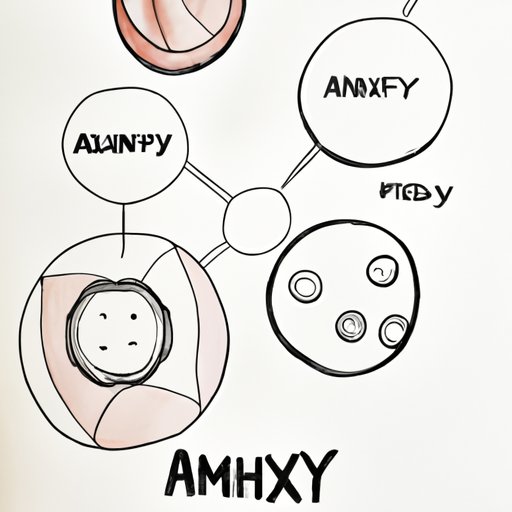
Introduction
Anxiety is a common condition that affects millions of people worldwide. While it’s often associated with emotional or mental symptoms like worry, fear, and panic, anxiety can also manifest in physical ways. One of the most distressing symptoms of anxiety is vomiting, which can be alarming and uncomfortable for those who experience it. In this article, we’ll explore the link between anxiety and vomiting, providing real-life examples, scientific research, self-help strategies, medical advice, and encouragement to help break down the stigma surrounding anxiety-related vomiting.
Real-life stories
For many people, anxiety-related vomiting is a frequent occurrence that can interfere with daily life. Take, for example, 29-year-old Alice, who suffered from panic attacks and threw up nearly every morning before work. She didn’t understand why this was happening and thought something was seriously wrong with her. Similarly, 35-year-old Tom experienced nausea and vomiting during his wedding reception due to anxiety about the event running smoothly. These stories illustrate how anxiety-related vomiting can affect anyone, even on important occasions.
Scientific study
Research shows a clear link between anxiety and vomiting. Specifically, studies have found that the body’s stress response triggers physical symptoms, including nausea and vomiting. When the brain perceives a threat, the fight-or-flight response activates, leading to changes in the digestive system that can cause discomfort. Additionally, the release of stress hormones like adrenaline and cortisol can affect the stomach lining, leading to inflammation and reflux. These biological mechanisms explain why anxiety and vomiting are closely related.
Self-help guide
If you’re experiencing anxiety-related vomiting, there are several effective self-help strategies you can try. One approach is to practice relaxation techniques like deep breathing, meditation, or progressive muscle relaxation. These techniques help calm the body and reduce stress levels, ultimately decreasing the chances of vomiting. It’s also helpful to identify triggers or situations that make you feel anxious so you can avoid or prepare for them accordingly. Other useful coping mechanisms include exercise, mindfulness, and talking to a trusted friend or therapist.
Medical advice
While self-help strategies are useful, some people may benefit from medical advice and treatments. If you’re struggling with anxiety-related vomiting, it’s essential to talk to your doctor or mental health provider about your symptoms. They can help diagnose the underlying cause of vomiting and suggest appropriate treatments like therapy or medication if necessary. Some anti-anxiety medications can decrease nausea and vomiting by targeting the brain’s neurotransmitters that are involved in the stress response. Supplements like ginger, peppermint, or chamomile may also provide relief, but always talk to a healthcare professional before using them.
Combating stigma
Unfortunately, there is still a stigma associated with mental health conditions like anxiety, which can prevent people from seeking help. This stigma is particularly harmful when it comes to anxiety-related vomiting because it can be mistaken for a physical illness, leading to unnecessary tests and treatments. To combat this stigma, we must talk openly and honestly about mental health and reduce the shame surrounding it. Everyone experiences anxiety differently, and there’s no shame in seeking help to manage symptoms.
Personal testimony
As someone who has struggled with anxiety-related vomiting in the past, I know how challenging and isolating it can feel. There were times when I was too embarrassed to talk about my symptoms or seek help, which only made matters worse. However, I learned that reaching out for support was the best decision I could have made. It’s okay to not have everything under control, and it’s okay to ask for help. Whether it’s talking to a friend, joining a support group, or seeking professional help, there’s always someone who will listen and understand.
Conclusion
Anxiety-related vomiting is a real and distressing symptom that affects many people. It’s essential to understand the link between anxiety and vomiting so that we can better manage symptoms and seek appropriate treatments. If you’re struggling with anxiety-related vomiting, try relaxation techniques, identify triggers, and talk to your doctor or therapist about treatment options. Remember, there’s no shame in seeking help, and you’re not alone.





